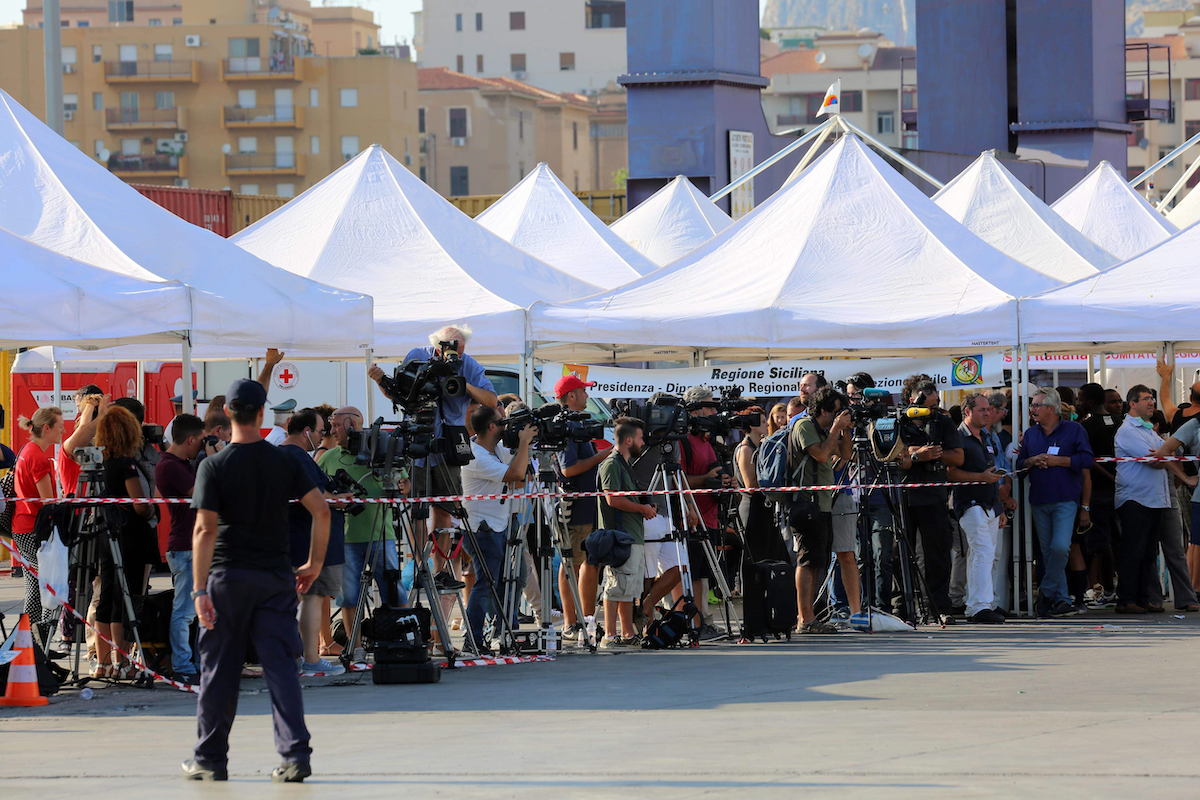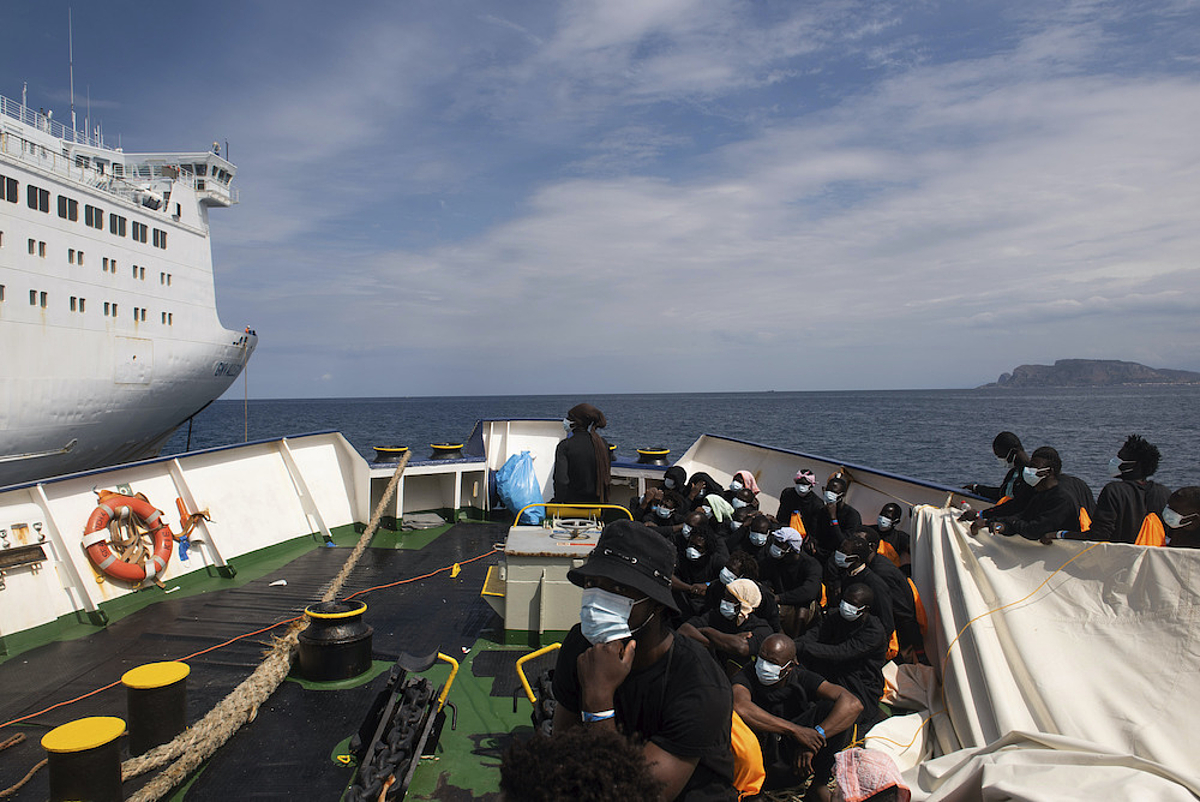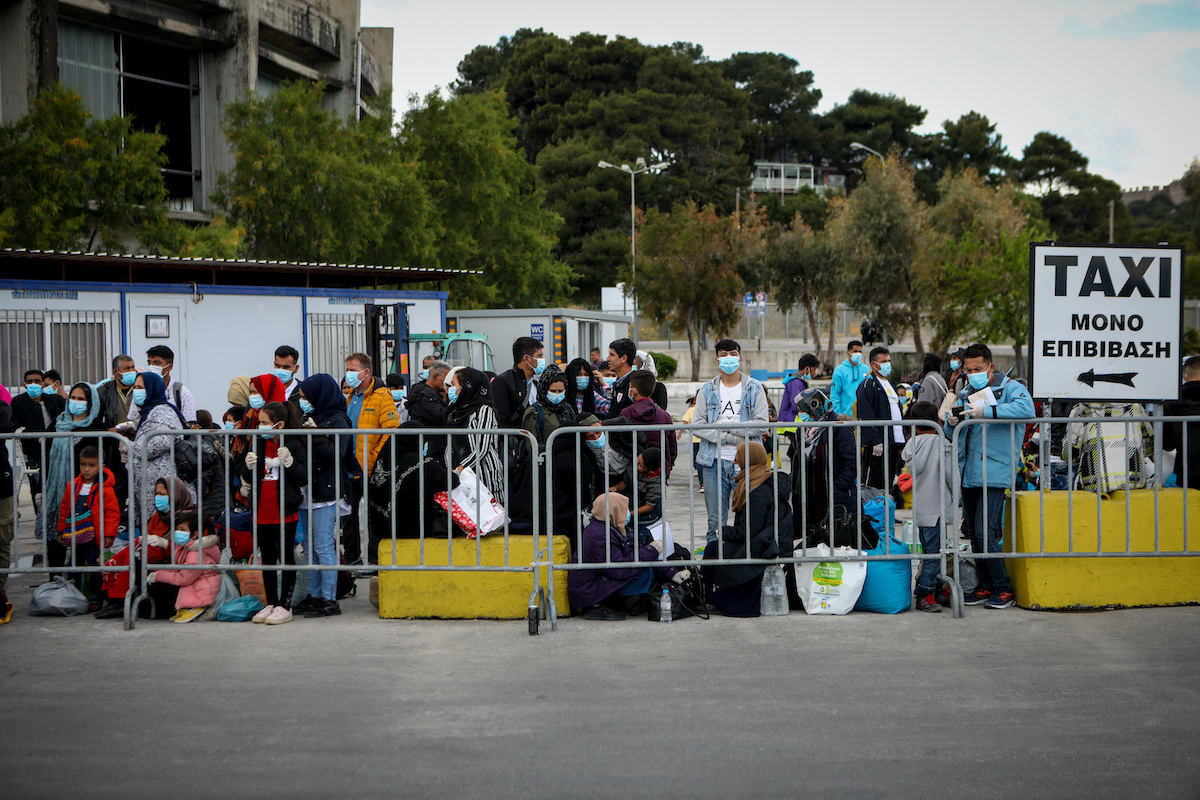MEDIENDIENST: Ms. Barretta, did the Covid-19-pandemics push the subject of migration out of the headlines?
The pandemic overshadowed all other topics, yes. But migration is still a relevant topic. Last summer most media outlets covered the increase in the number of arrivals across the Mediterranean. Some of them spread the rumor that this might increase the infection rate. But all in all, the tone is less dramatic than two-three years ago.
Why is that?
On the one hand, fewer people arrived in Italy from Africa in the past three years. More importantly, the topic isn’t the main focus of political debates anymore. Italian media dedicate a large part of their coverage to party politics. The topic of immigration is often addressed from this perspective. Because of that, it was rather easy for parties like Matteo Salvini’s "Lega" to reach a broad audience with their right-wing populist demands. It is telling that the name of the former Minister of the Interior is still one of the words that is most commonly associated with immigration in the media.

PAOLA BARRETTA is a researcher on public opinion and crisis-communication at the “Osservatorio di Pavia”. Since 2015 she has been coordinating the yearly report of the association “Carta di Roma” – a non-profit organization that monitors and advises media outlets on the issue of discriminatory language. For its reports, the organization has analyzed approximately 100.000 newspaper articles, TV and radio broadcasts.
Is it mainly right-wing media who contribute to the alarming tone of the coverage?
Not only. In eight years, we analyzed almost 100,000 articles coming from local and national, conservative and progressive media. For instance, we noticed that many media outlets use the word „clandestino“, meaning illegal immigrant, as a synonym for asylum-seeker or immigrant – regardless of their political orientation. This word belonged originally to the right-wing populist lingo. But now it has become commonplace even in quality-media, thereby corroborating the association between migration and illegality.
What changed over the past few years in the way media speak about immigration?
Since we started our monitoring back in 2012, we observed three main phases. First came the “Lampedusa phase”. In 2013, a series of tragic shipwrecks in front of the Italian coast drew attention to the fact that thousands of people were risking their lives to come to Europe. This phase was characterized by strong emotional involvement.
Did that change in 2015, when the number of refugees rose significantly?
The tone of the debate has become significantly more negative as recently as 2017. Differently than in Germany, after a sudden increase in 2014 the number of refugees reaching Italy has stayed relatively stable. Between 2014 and 2016 it varied between 150,000 and 180,000 people a year. The second phase began in 2016, as several media started suspecting the NGOs saving immigrants at sea to be in cahoots with human traffickers. During this period, almost half of the media reports had an alarming tone. Many media talked about a “crisis” and an “emergency”.
And the third phase?
I would call it the phase of the “gradual relaxation”. It started in 2018 and it lasts to this day. In this phase the number of reports on immigration – as well as the number of those adopting an alarming tone – has gone down considerably.
Did the debate change for the better?
You can’t really say that. In Italy the topic of immigration is still marred by fears and concerns. Even in 2020, more than half of the words in articles about immigration belong in the “concern”-category: words like quarantine, infection or death. It’s unsurprising that one of three Italians considers immigrants a threat. As soon as the number of people coming across the Mediterranean were to go up again, the debate would escalate very quickly.
Interview: Fabio Ghelli
Sie sind Journalist*in und haben weitere Fragen oder suchen Fachleute zum Thema? Dann können Sie uns gern kontaktieren. Wir helfen schnell und unkompliziert. Unsere Texte und Grafiken können kostenfrei unter den Regeln der Creative Commons und unserer Namensnennung verwendet werden. Dies gilt nicht für Bilder und Fotos, die wir von Dritten erworben haben.



